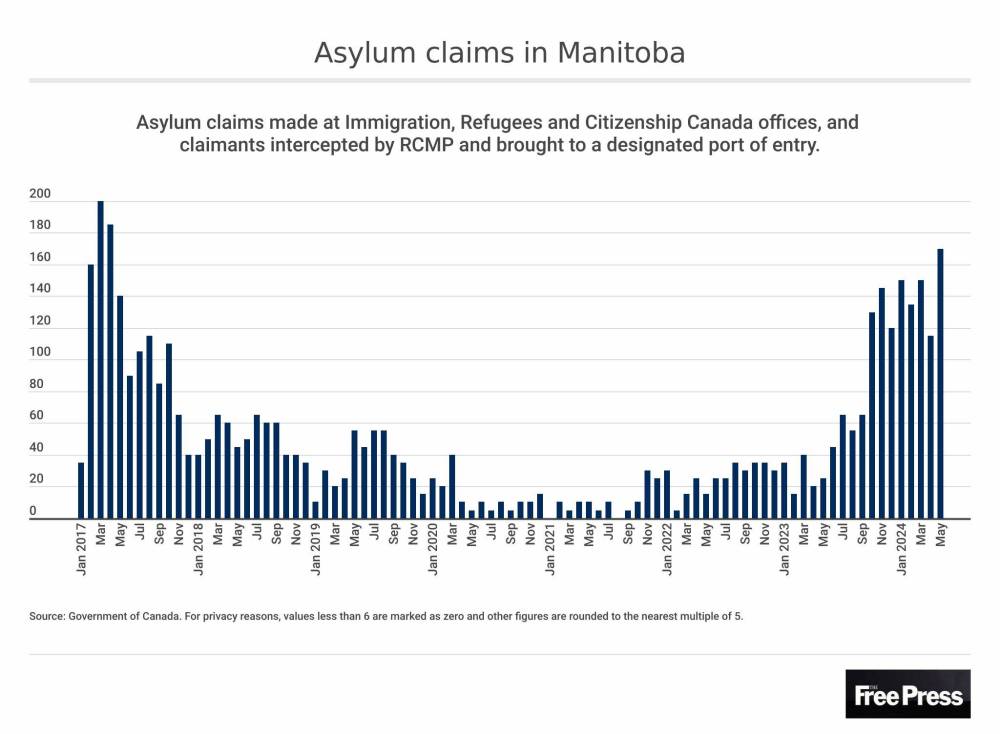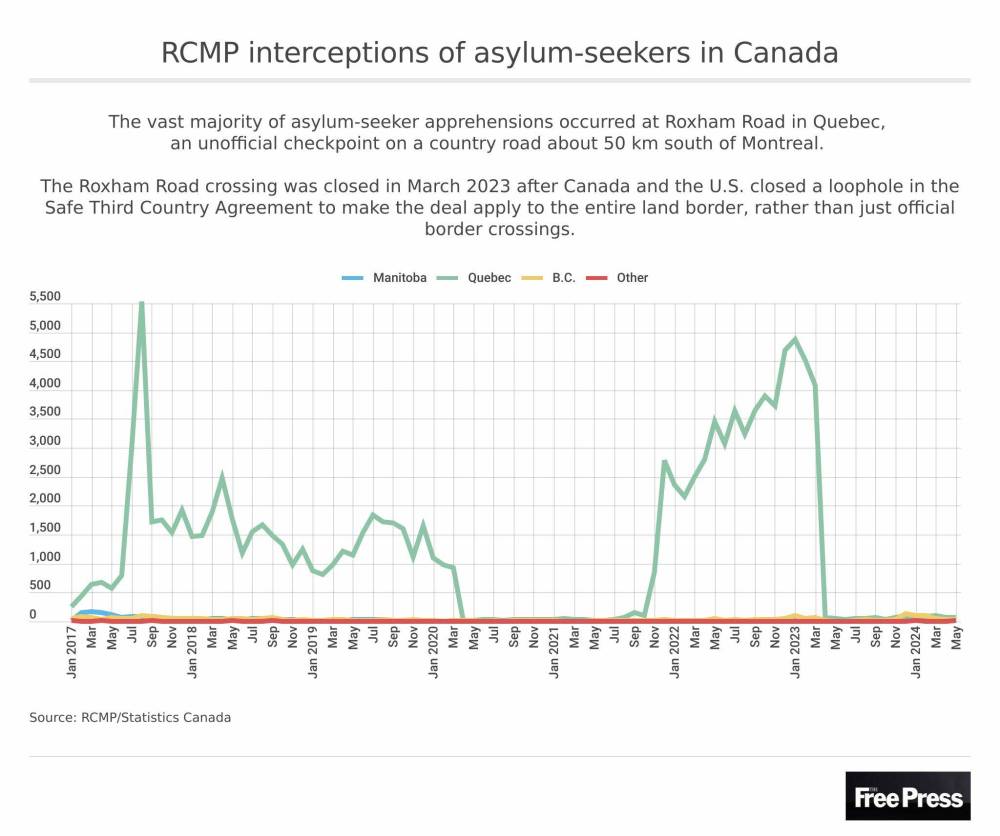The Manitoba government said it is open to accepting more French-speaking asylum seekers, even as premiers of other provinces are pushing back against the crush of border crossers.
Quebec Premier François Legault raised the issue this week as premiers gather in Halifax for their annual summer meeting.
“We really need to decrease the number,” Legault said about the number asylum seekers to his province. “The future of French on the island of Montreal is in play.”
“We really need to decrease the number,” Quebec Premier Francois Legault said in Halifax today about the number asylum seekers to his province. “The future of French on the island of Montreal is in play.” (The Canadian Press)
When asked to comment on the issue, Manitoba Immigration Minister Malaya Marcelino said this province is prepared to welcome asylum seekers, and specifically mentioned the French language.
“Manitobans are a welcoming people and would help take French-speaking asylum seekers.”
The statement went on to say that services are needed.
“As part of our efforts, however, our government would like to ensure the federal government can provide work permits and other transitional supports to people coming to the province. When people are able to work, they do so and can better integrate into the community and help make Manitoba a better place to live.”
Immigration, Refugees and Citizenship Canada and the Canada Border Services Agency processed 720 asylum claims in Manitoba from January to May 2024, federal data show.

Officials in Quebec and Ontario processed drastically more during that period, at 28,165 and 40,240, respectively.
The Prime Minister’s Office said last month Trudeau and Legault had discussed the issue of asylum seekers and $750 million in federal money had been promised to the Quebec government for immigration-related services.
In Alberta, where 3,740 people have sought asylum, Premier Danielle Smith said she’d like to see the federal government offer her province similar support.
While Alberta and Quebec share an interest in having the federal government support asylum seekers in Canada, Smith said Alberta doesn’t have Ottawa’s ear on this matter the way Quebec seemingly does.
“We’d like them to make the same commitment (in Alberta),” she said.
Canadian and U.S. authorities have reported an increase in illegal border crossings since the end of the COVID-19 pandemic. People are often fleeing conflicts, persecution or economic hardship, while some have small children with them.
Human smugglers frequently force people who’ve hired them to cross the Canada-U.S. border in Manitoba, where inclement weather can prove deadly.
Manitoba RCMP officers, who patrol roughly 500 kilometres of the international border, intercepted 283 asylum seekers from January to May 2024, federal data show.

In December 2023, four men from Chad were found after walking into Emerson, about 100 kilometres south of Winnipeg. One was hospitalized with serious injuries caused by frigid weather.
The RCMP integrated border enforcement team also discovered seven men from Chad on Jan. 27, when officers stopped a rented vehicle driven by an alleged human smuggler who lives in Calgary.
In January 2022, a family of four from India, including two children, froze to death in a field east of Emerson while trying to walk into the U.S.
—With files from The Canadian Press
tyler.searle@freepress.mb.ca

Tyler Searle
Reporter
Tyler Searle is a multimedia producer who writes for the Free Press‘s city desk. A graduate of Red River College Polytechnic’s creative communications program, he wrote for the Stonewall Teulon Tribune, Selkirk Record and Express Weekly News before joining the paper in 2022. Read more about Tyler.
Every piece of reporting Tyler produces is reviewed by an editing team before it is posted online or published in print — part of the Free Press‘s tradition, since 1872, of producing reliable independent journalism. Read more about Free Press’s history and mandate, and learn how our newsroom operates.
Our newsroom depends on a growing audience of readers to power our journalism. If you are not a paid reader, please consider becoming a subscriber.
Our newsroom depends on its audience of readers to power our journalism. Thank you for your support.